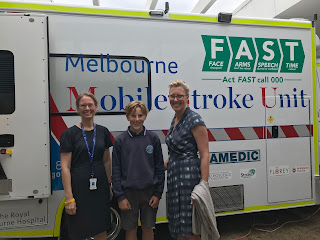The program aims to create a diverse cadre of committed leaders who will help the organization in its work toward the World Health Organization’s goal of reducing the risk of premature mortality from noncommunicable diseases, including cardiovascular diseases, by 25% by 2025.
For the 2018 cohort (Table 1), the World Heart Federation partnered with the World Stroke Organization to focus on stroke prevention, treatment, and rehabilitation.
The 2018 seminar was held from June 23-29, 2018 at Duke Kunshan University in Kunshan, China and was hosted by Dr. Lijing Yan (Figure 2).
The 2018 program was the
first time that the World Heart Federation partnered with another professional
organization. The 2018 program was sponsored by Boehringer Ingelheim with
support from Duke Kunshan University. Previous seminars have been funded by
Boehringer Ingelheim (2014-2018), Novartis (2017), BUPA (2015-2016), and
AstraZeneca (2014) and have focused on essential medicines, tobacco control,
raised blood pressure, and secondary prevention (Table 2).

In 2018, Dr. Salim Yusuf provided sustainable funding for
the program through an endowment, and subsequently the Emerging Leaders Program
was renamed the Salim Yusuf Emerging Leaders Program in recognition of his
support. Emerging Leaders who receive
full support from the World Heart Fed.
The World Heart Federation’s Salim Yusuf Emerging Leaders Program
consists of pre-seminar online training, a 5-day seminar with didactic and
small group sessions to develop a collaborative research or advocacy project
proposal, and subsequent execution of the projects over the ensuring 1 to 2
years.
The program emphasizes active learning in leadership, communication, team
work, and research and supports each of the 3 teams with 25,000 Swiss francs to
pursue research and advocacy projects, which is a distinguishing feature of the
training program compared with others. Previous cohorts were divided into
groups based on experience and interest in implementation science, health
systems strengthening, and health policy research, recognizing that overlap is
common. For the 2018 cohort, the program divided the Emerging Leaders into
groups focusing on stroke prevention, stroke treatment, and stroke
rehabilitation.
The 2018 teams’ projects are listed in the Table 2 and are aligned with the emphasis on implementation science
(stroke rehabilitation team), health systems strengthening (stroke treatment
team), and health policy research (stroke prevention team).
The 2014-2017 teams have demonstrated success in global
collaborative projects with notable productivity, and the 2018 cohort is well-positioned to continue
this trend.
The Salim Yusuf Emerging Leaders Program is a strategic priority
area within the World Heart Federation, and its most recent partnership with
the World Stroke Organization is an important step toward work in achieving the
World Health Organization’s “25 x 25” goal and other global goals.
Candidates who may be interested in
participating in future Emerging Leaders cohorts should visit whfel.org for
more information about topic areas and timelines, including plans for the 2019 edition
of the Salim Yusuf Emerging Leaders Program, which will focus on heart failure.
Mark
D. Huffman,1 Pablo Perel,2,3 Jean-Luc Eisele,2
David A. Wood,2,4 Maria F. Grupper,5 Christopher Chen,5,6
Craig Anderson,5,7 Darwin R. Labarthe,1 Salim Yusuf,2,8
Lijing Yan9
1 Northwestern
University Feinberg School of Medicine, Chicago, USA
2 World
Heart Federation, Geneva, Switzerland
3 London
School of Hygiene and Tropical Medicine, London, UK
4 Imperial
College London, London, UK
5 World
Stroke Organization, Geneva, Switzerland
6 National
University Singapore, Singapore
7 The
George Institute for Global Health China, Beijing, China
8 Population
Health Research Institute, McMaster University, Hamilton, Canada
9 Duke
Kunshan University, Kunshan, China
Disclosures: MDH
receives funding from the World Heart Federation to serve as its senior program
advisor for the Emerging Leaders program, which is supported by Boehringer
Ingelheim and Novartis with previous support from BUPA and AstraZeneca. MDH
also receives support from the American Heart Association, Verily, and
AstraZeneca for work unrelated to this research.


















